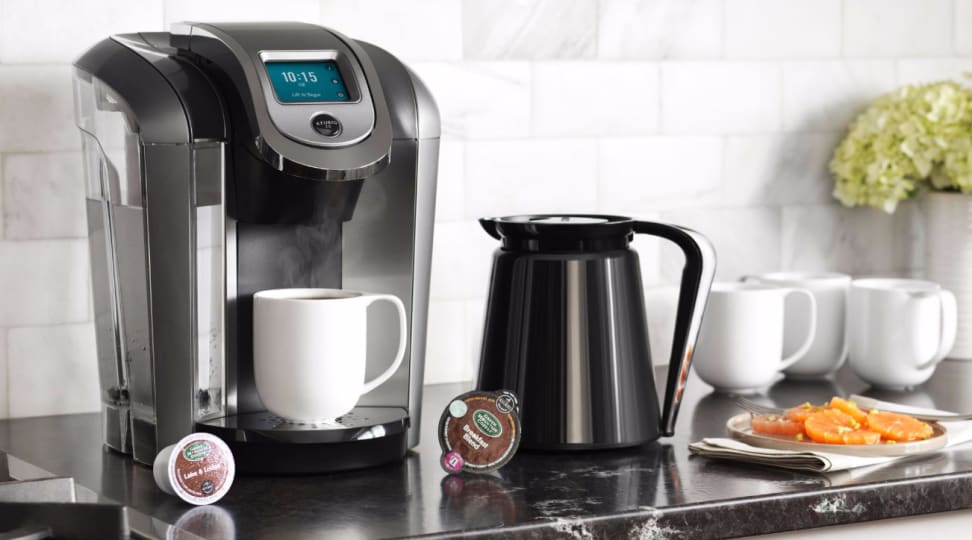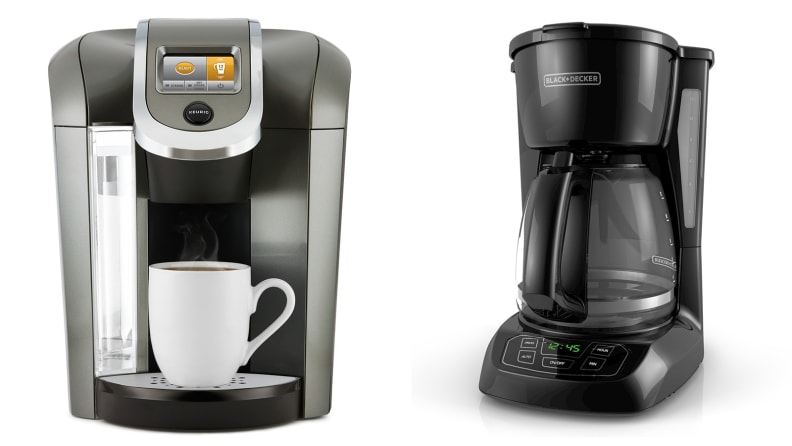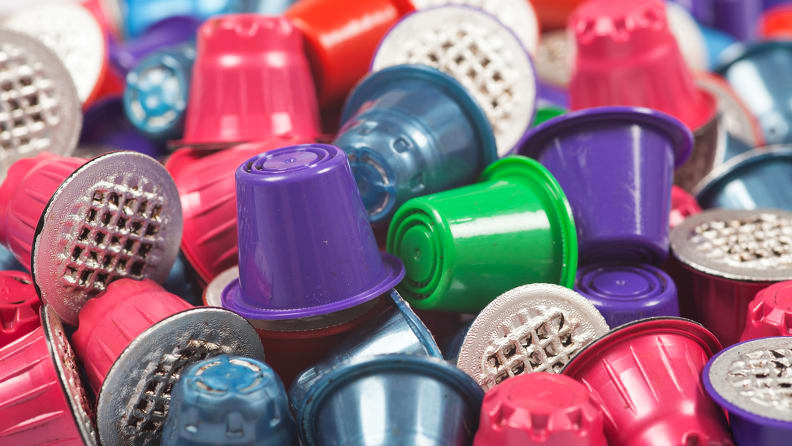Are Keurigs still worth the money?
A single cup of coffee can make all the difference.
 Credit:
Keurig
Credit:
Keurig
Products are chosen independently by our editors. Purchases made through our links may earn us a commission.
I love my Keurig. As I say this, a coffee snob somewhere off in the distance shudders in disgust. It may not be the best for a gourmet cup made with beans from a local roaster gathered in a GMO-free, fair trade field, but it works for my morning cup o’ joe. And to be honest, I really have no idea how to use a coffee maker (believe me, I’ve tried), so I really don’t think I’ll be ditching my Keurig life anytime soon.
Despite my love for this kitchen gadget, I do see the downsides of a one-cup coffee brewer in terms of convenience, costs, and sustainability. So I decided to do some research and see if the good ol’ Keurig was worth it or whether I should try the whole coffee pot route or even invest in one of the fancier coffee makers out there like the Technivorm Moccamaster, which happens to be the best coffee maker we've ever tested.
Is the Keurig it worth it?
Well, that really depends on your budget, how much you love coffee, or subsequently how much you love the environment. As a casual coffee drinker, I find the Keurig really easy to use, but in the future I might give this coffee brewing thing a try or look towards more sustainable pod options when my budget allows. If you're unsure of which option is best for you, check out the pros and cons in terms of convenience, cost, flavor, and sustainability.
The cost of convenience
The Keurig’s main appeal is how freaking simple it is. You just fill up the water tank, pop in a pod, press start, and you’ll have coffee in less than a minute. This means you won’t have to grind coffee beans, figure out how much coffee and water you actually need, or wait for a whole pot to brew. It’s that easy.
Honestly, the only thing easier than using a Keurig is probably bopping into a Starbucks and ordering one that they brewed for you. But for someone on a budget, that’s not always an option.
It saves time, but does it save money?

The Keurig is more expensive than your typical coffee maker.
Investing in a Keurig is not cheap. The best one we’ve ever tested goes for $159.99 on Amazon, while a reasonable drip coffee maker goes for less than $20. When it comes to the cost per cup, Keurig coffee is cheaper than going out for coffee every day, but unless someone gifts you one, a Keurig is going to set you back a pretty penny.
Additionally, a 32-pack of K-cups costs $15.18 (or $0.47 per pod) whereas a 12-ounce bag of the same ground coffee only costs $13.15 and gives you enough to make 62 cups of coffee (about $0.21 a cup). This means it’s more than twice as expensive to brew a quick cup from the Keurig, but for me, that cost is offset by the convenience of the machine and my lack of brewing expertise.
I actually like the taste of Keurig coffee
I’ll give it to you: freshly ground, home-brewed coffee is absolutely delicious when you brew it right. The slow brew process creates a genuinely better flavor, despite my frustration of waiting more than a minute for a cup of coffee.
I do really like the taste of good coffee, but I honestly don’t mind the taste of average coffee either. With a quick brew time, the K-cups don't produce the strongest flavor and you can't really adjust individual pods to your flavor or strength preferences.
But I'm fine with simpler coffee. For me, my favorite Donut Shop Coffee k-cups will jump start my morning, but a true coffee aficionado might have a problem with the flavor.
An argument for sustainability

Coffee pods are currently not disposable and are difficult to recycle.
My biggest concern with the Keurig (that I often choose to overlook) is how incredibly wasteful those little pods are. Currently, K-cups are not recyclable or biodegradable, which means they basically sit in a landfill until the end of time—not the best, huh?
But there is hope for more sustainable use of this coffee machine. According to Keurig’s site, they’re hoping to be 100% sustainable by 2020. For now, if you want to recycle these pesky pods, you need to take them apart by hand, rinse out the coffee beans, remove the foil lid, and recycle only the plastic cup. This isn’t too much work for your typical do-gooder, but is too easy to skip when you're in a rush in the morning.
Thankfully, some brands are developing compostable K-cups like Cameron's Coffee that will actually decompose when you toss them in the trash—granted they are a bit more expensive than typical K-cups, but the peace of mind is worth the added cost. Another more sustainable option is to invest in a reusable K-cup that allows you to add in your own coffee grounds, which also makes it the cheaper option compared to buying pods if you want to stick with the Keurig.
Plus, there are plenty of fair trade, organic coffee brands you can support that do not come in K-cup form (though some do). If you want to go the extra mile to support local businesses, you can purchase beans direct from a coffee shop too.
Prices are accurate at the time of publication, but may change over time.
